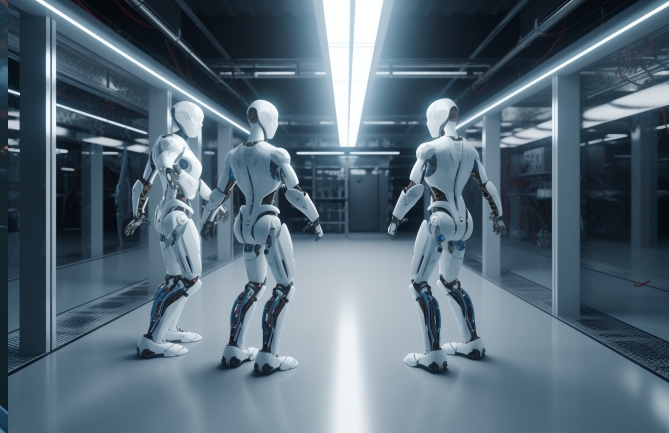Google DeepMind and robotics company Apptronik announced a strategic collaboration to develop artificial intelligence humanoid robots that can operate efficiently in complex and dynamic environments. This cooperation combines DeepMind's leading technology in the field of artificial intelligence and Apptronik's professional strength in robotic hardware, marking another major progress in the integration of artificial intelligence and robotics technology. The two parties will jointly explore wider applications of robots in industry and daily life, laying a solid foundation for the future era of intelligent automation. Apptronik's Apollo robot, with its excellent performance and ability to collaborate with humans, has become the core carrier of this cooperation, while DeepMind's Gemini AI model will inject a powerful intelligent brain into it.
Google DeepMind and robotics company Apptronik announced a collaboration to combine their technical expertise to develop artificial intelligence humanoid robots that can operate in complex and dynamic environments. This cooperation aims to promote the in-depth integration of robot hardware and artificial intelligence, and explore the wider possibilities of robots in industrial and daily applications.
Apptronik, which began operating independently from the University of Texas at Austin's Humanistic Robotics Laboratory in 2016, has developed 15 robot models to date, including the Valkyrie robot designed for NASA. The company's latest Apollo robot is 1.73 meters tall and weighs 73 kilograms. It is designed for industrial environments and can work collaboratively with humans. Google DeepMind recently demonstrated the operation of the Apollo unit equipped with its AI model Gemini2.0.

As a leader in robotics hardware, Apptronik has partnered with GXO and Mercedes-Benz and plans to expand to more partners in the future. Google DeepMind has top professional capabilities in the fields of machine learning and physical simulation. Its latest AI model Gemini1.5Pro demonstrates excellent environmental navigation capabilities, with a success rate of 90% in complex tasks.
Additionally, the AI system is able to learn from simple smartphone videos, recognize small objects such as coasters, and understand abstract concepts such as pinpointing whiteboard areas when looking for a suitable place to draw.
Currently, the competition between AI and robotics is becoming increasingly fierce. OpenAI, Google DeepMind's main rival, recently re-entered the field of robotics by partnering with Figure and rebuilding its shuttered robotics division.
This collaboration between Google DeepMind and Apptronik not only injects cutting-edge AI capabilities into the Apollo robot, but also paves the way for the practical application of humanoid robots in complex environments.
The success of this cooperation will have a profound impact on the future development of artificial intelligence and robotics technology, and deserves continued attention. The strong alliance between the two parties heralds the coming of smarter and more flexible robots, which will profoundly change industry and daily life.